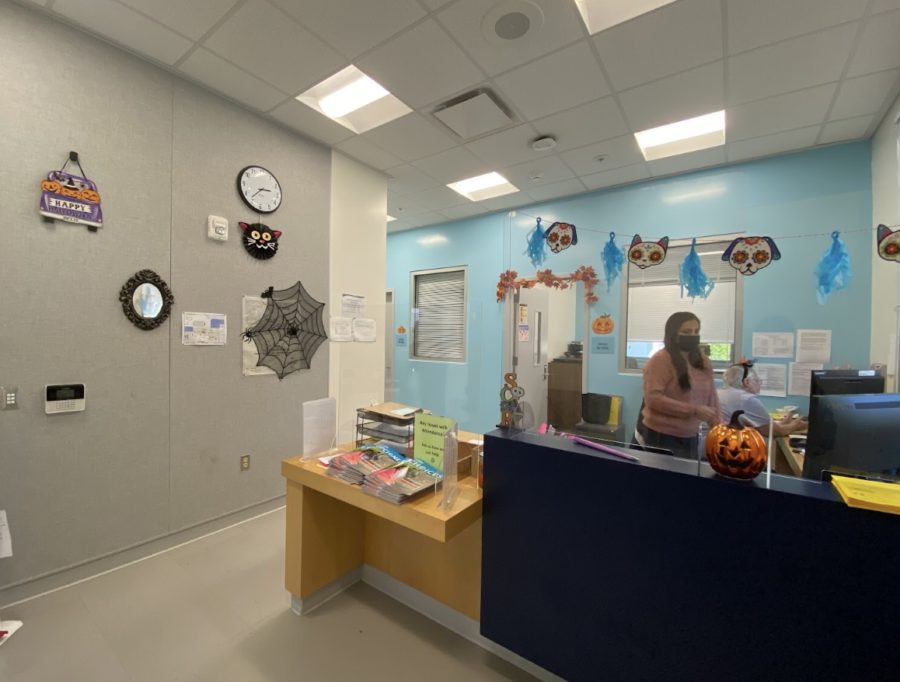Halloween Culture and Traditions at Venice
October 29, 2021
As Halloween approaches, many students and teachers begin their annual preparations. Each person has their own specific set of traditions for the celebration of one of America’s sweetest holidays.
Cultural Origins of Halloween
By the 9th century, Christianity had spread across the Celtic lands. Naturally, the Christian beliefs were heavily influenced by the local pagan traditions. It is widely believed that the church tried to replace the pagan festival of Samhain with a related more Christianized holiday. Hence, around 1000 AD the church officially made November 2nd, All Souls’ Day.
All Souls’ Day was also called All-Hallows which comes from ”Alholowmesse,” a Middle English term meaning All Souls’ Day. The traditional night of Samhain, which happens the night before All Souls’ Day became known as All-Hallows Eve, and later on Halloween.
Spiritual and Religious Significance Behind Halloween
With its rich roots in Paganism and Christianity, some cultures and religions view Halloween as an inappropriate holiday.
In the Islamic faith, celebrating Halloween is considered Haram (meaning forbidden). The faith rejects paganism and polytheistic beliefs of any sorts. Because the roots of Halloween lie within Celtic Paganism, many Muslims do not participate in the holiday.
Social studies teacher Ahsan Minhas said that Halloween is not socially accepted in the country he grew up in, Pakistan – a Muslim majority country.
“It’s not encouraged,” Minhas said. “Schools don’t do any Halloween celebrations because it’s considered to be a celebration rooted in Christianity.”
“It’s considered pagan or Christian, and in a conservative Muslim country, diversity is definitely not a priority.”
Costumes
Many students didn’t get to dress up due to the COVID-19 Pandemic.
Some students aren’t sure what their costume plans are for this year. Halloween traditions like trick or treating, haunted houses, and parties are being held off.
Freshman Vanessa Lomeli’s family used to go trick or treating as a family tradition, however, she’s not sure if she’ll be able to this year.
“I dressed up last year, but I’m not sure about what I’m going to be this year,” she said.
Early costumes were typically made out of household items, like paper, scraps, and fabric. When Lomeli was really little, she made her own Halloween costumes, when most students typically buy their costumes.
Even though our world has changed dramatically over the past year, Halloween spirit and joy is still present.
Trick or treating at Venice
No matter how old you are, many still enjoy a good treat on Halloween—from the sweet breads, the sugary candy friends and neighbors hand out, to a refreshing fall drinks.
Many of Venice’s students are no strangers to trick or treating, and everyone has their own unique routine to commemorate Halloween.
Senior Caroline Zarate said that her family doesn’t really celebrate Halloween, but she still takes her little brother trick or treating.
“My family is Mexican, so we don’t really celebrate Halloween.” She said, “instead we celebrate Dia de los muertos. My mom puts up an altar with marigolds, pictures of our family and candles every year.”
Junior Alandra Sanchez said she has her Halloween traditions have changed over time.
“I used to trick or treat as a kid,” she said. “But I got too old, so I just watch scary movies at home. My favorite has to be Halloween.”









 Watch the full video o
Watch the full video o







![Taylor Swift’s newest album titled Midnights 🌙 takes a deeper look at the persona of Taylor herself, and according to reporter Alina Miller, although this isn’t Taylor’s best work, there are highlights worth mentioning about. 💫
Click the link in the bio to check out the full article!
[Photo Caption: Taylor Swift hits all top 10 spots on Spotify’s Billboard Top 100 chart]
#taylorswift #midnights #tiktok #antihero #spotify](https://scontent-iad3-1.cdninstagram.com/v/t51.29350-15/314744727_1556543814822641_1643591421920256829_n.jpg?_nc_cat=110&ccb=1-7&_nc_sid=8ae9d6&_nc_ohc=aDxNzq2snTYAX_gAl0G&_nc_ht=scontent-iad3-1.cdninstagram.com&edm=ANo9K5cEAAAA&oh=00_AfBa4EluVzZT-7d5rKyT6tLJo0UJuCvRJPSCMX71aeO38Q&oe=63965890)



 Watch the full video
Watch the full video 
